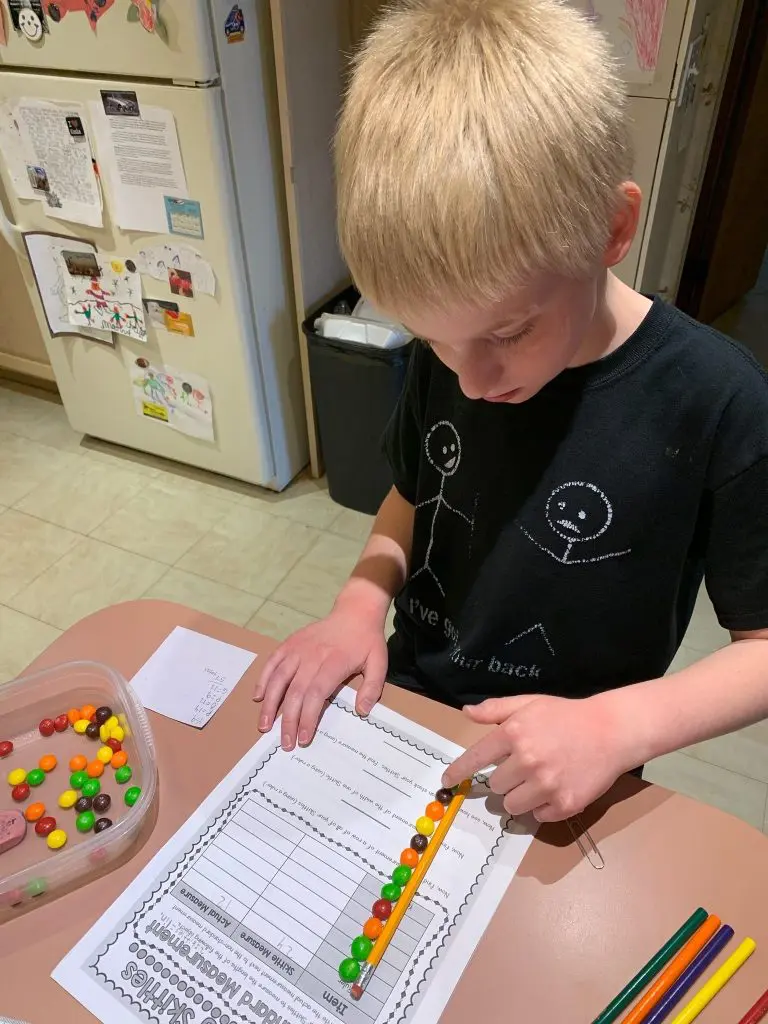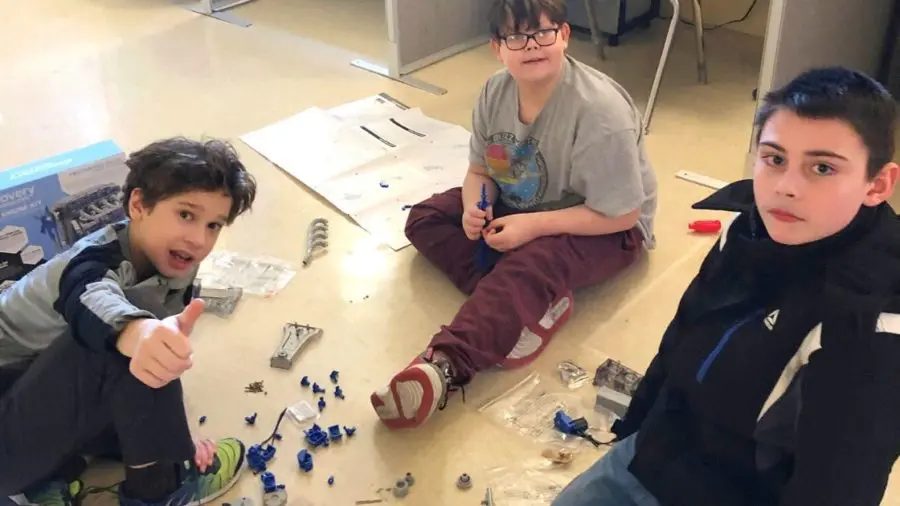Prior to the global pandemic, at the Watson Institute’s WISCA special education school, students with high-functioning Autism Spectrum Disorder learned through a combined approach of in-class instruction and support alongside an online curriculum tailored to meet their individualized needs.
Special education teachers at WISCA utilize a variety of methods to help their students learn academically and developmentally. Sara Crooks, a teacher at the WISCA school in Sharpsburg, incorporates STEAM projects into her middle school students’ curriculum to help them work towards their IEP (Individualized Education Plan) goals.
STEAM is defined as Science and Technology interpreted through Engineering and the Arts all based in Mathematical elements. STEAM projects can take on many forms and be creative and unique. Ms. Crooks tries to incorporate STEAM activities into her class’s lesson plan at least once a week, sometimes more.
Before schools switched to virtual learning, Ms. Crooks worked with her students on a variety of projects, including: building and flying paper airplanes, designing and building gingerbread fire trucks, creating contraptions to protect an egg from breaking when dropped from a significant height, building solar cards, making scented bath bombs to learn about chemical reactions, measuring the growth of mold on bread to teach students about the effects of germs, and growing crystals.
Earlier in the school year, the WISCA students in Ms. Crooks’ class worked on model engine kits that had over 100 parts to assemble! They started out working independently or in small groups but everyone ended up working together at times and collaborating to help one another at different steps along the assembly process.
The students were given the instructions provided in the kit and were encouraged to work together, without assistance from the teachers, to follow the directions step-by-step. Without the option of asking for help, the students had to problem-solve any issues that came up during the build. This was a great learning opportunity both academically and developmentally.

Even though lessons are being delivered virtually now, Ms Crooks’ students are still working on STEAM projects from their homes. She has assigned her students engineering projects such as creating a spin art machine and hands-on math projects using Skittles candy. Recently, she assigned an Earth Day inspired project in which students were able to choose from a variety of activities such as making a terrarium, biosphere, or bird feeder using items they could find in nature around their homes.
Students are given the chance to present the projects they complete during classroom video meetings which help them stay connected and enables Ms. Crooks to continue her lessons virtually.
Benefits of STEAM in Special Education
Like the model engine kit task, STEAM projects can offer many benefits for students with special needs. Academically, students are learning hands-on applications for topics covered in their lessons such as math and science.
Developmentally, hands-on projects give students the opportunity to learn valuable life skills like cooperation, collaboration, and perseverance in the face of challenges. Ms. Crooks shared that perseverance was an especially important lesson with the model engine project. One group realized they had missed a step and had to take most of their engine apart to fix the mistake, undoing a good deal of the work they put into it. They didn’t give up and kept going until they completed their engine!
Student with Autism, such a those in the WISCA program, also benefit from the fine motor skills practice of working on projects like this one that have many parts, some of which are very small and need to be put together in a particular manner. Organization and problem-solving are also skill sets utilized by the students as they were working on their models at different times throughout the school week so they had to organize their time and materials to ensure nothing was lost as they worked between lessons.
Ms. Crooks adds that teamwork and good sportsmanship were also valuable lessons learned in the completion of the model engines and in many of the STEAM projects her students work on throughout the year.
Another benefit is that many STEAM projects can be completed at home using household items such as empty paper towel rolls, food items, and string. The nature of these projects makes it possible for Ms. Crooks’ students to continue their learning at home!
Learn more about our special education school programs like WISCA.
Are you interest in additional resources from the educational team at Watson? Be sure to sign up for our weekly e-newsletter, Learning Tips! Subscribe on our website today!
